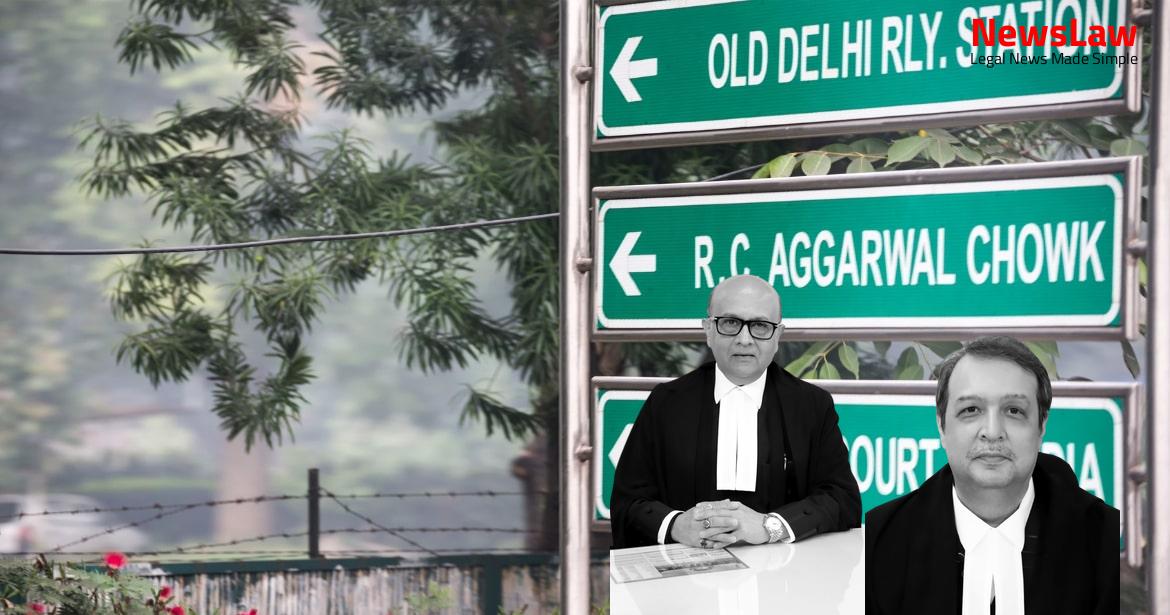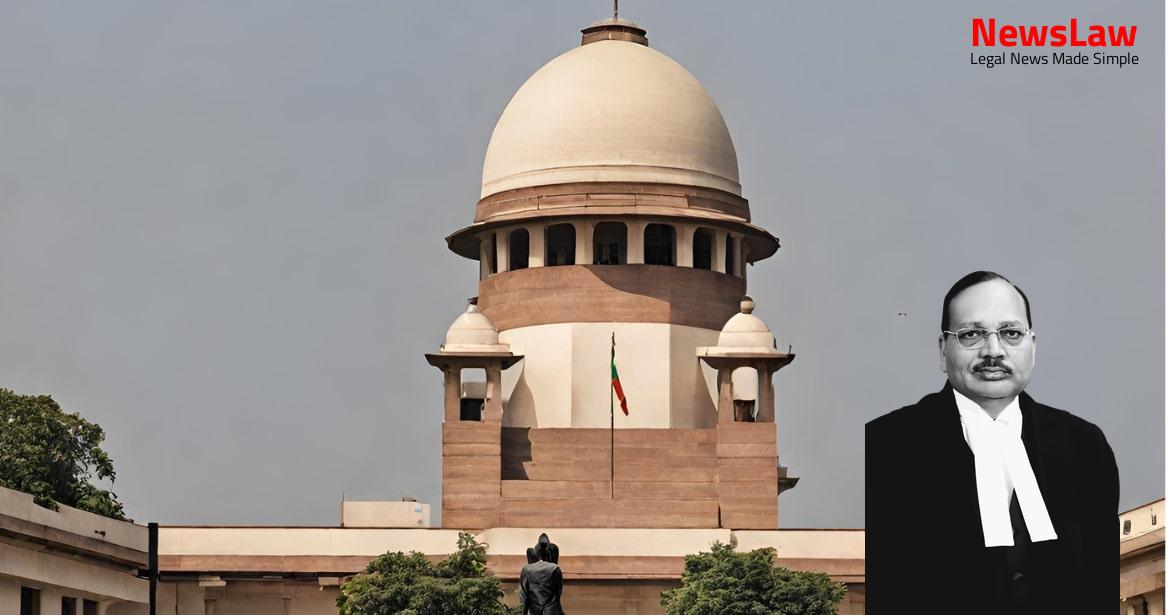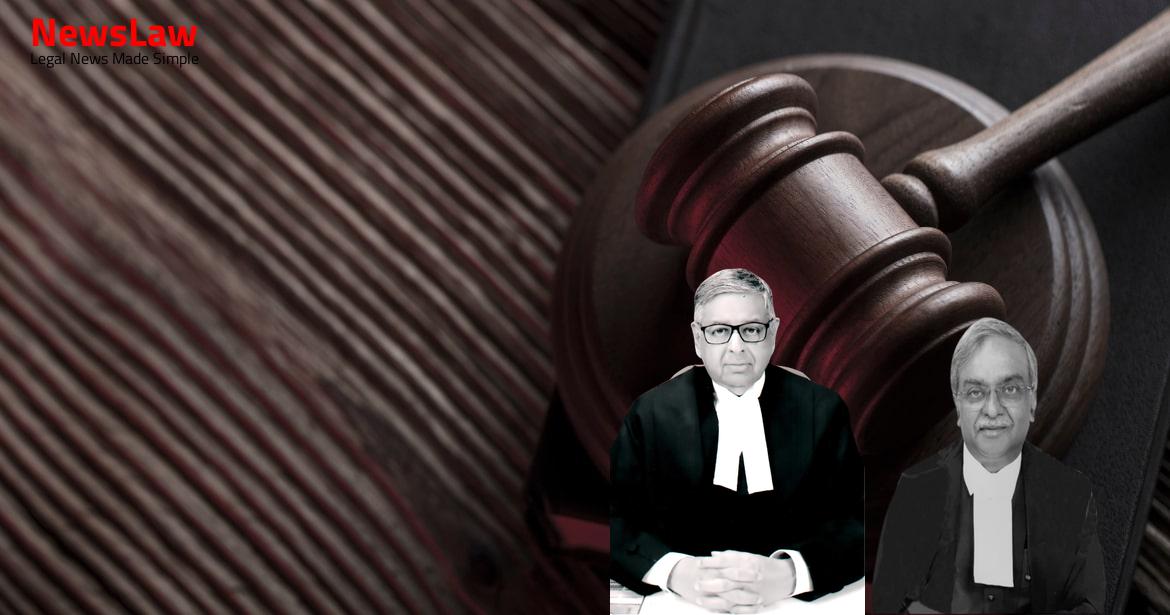In a significant decision by the Supreme Court of India, a key ruling on arbitration dispute resolution has been pronounced in the case involving SBI General Insurance Co. Ltd. and a respondent party. The judgment sheds light on crucial aspects of arbitration law, emphasizing the principles of autonomy and non-interference. Stay informed on the latest legal developments shaping the landscape of dispute resolution in the country.
Facts
- SBI General Insurance Co. Ltd. is a Private Sector General Insurance Company located in Ahmedabad.
- The High Court of Gujarat directed the appointment of an arbitrator to resolve disputes between the parties.
- The respondent signed a consent letter and advance discharge voucher under the apprehension that it would impact the pending claim related to a second fire incident.
- The surveyor’s report indicated that the fire may have been caused by spontaneous combustion.
- The respondent initially claimed Rs 1,76,19,967 but later accepted the surveyor’s assessment of Rs 84,19,579.
- The appellant released the claim settlement amount of Rs 84,08,957.
- The respondent alleged coercion and undue influence in signing the discharge voucher.
- A legal notice was issued for the balance payment of the claim amount.
- The appellant refuted the allegations made by the respondent.
- The parties failed to reach an amicable resolution, leading to arbitration proceedings.
- The appellant submitted a reply letter refuting the respondent’s claims.
- The respondent requested the survey report, which was not provided by the appellant.
- Two incidents of fire caused substantial loss to the respondent’s assets.
- The appellant released a total of Rs 4,86,67,050 for the second fire incident claim.
- The respondent raised concerns regarding the settlement and requested further information.
- The appellant stated that the respondent signed the discharge voucher willingly and after understanding the assessment.
Also Read: Case of Promotion Policy: Ravikumar Dhansukhlal Maheta vs. High Court Of Gujarat
Issue
- Company claims petitioner was paid amounts due under the policy and there is no need for arbitration as per clause 13.
- Petitioner disputes the claim on various grounds.
- The case of M/s Arif Azim involved deciding whether the Limitation Act, 1963 applies to an application for appointment of an arbitrator under Section 11(6) of the Arbitration and Conciliation Act, 1996.
- The High Court identified three questions for consideration:
- 1. Whether executing a discharge voucher for full settlement bars arbitration?
- 2. The scope of judicial scrutiny for application under Section 11(6) of the Act when accord and satisfaction plea is raised.
- 3. Whether court can refuse to refer a claim under Section 11 of the Act if it is clearly time-barred.
Also Read: State of India vs. Anees : Upholding the Conviction for Murder
Arguments
- The appellant contested the arbitration petition filed by the respondent, arguing that the claim raised was stale and not open for dispute after signing the consent letter.
- A full and final settlement was reached between the parties, indicating a clear understanding.
- The appellant argued that the court could consider the question of arbitrability during the Section 11 petition stage.
- The High Court determined that the dispute fell within the realm of adjudication and should be handled by an arbitrator.
- Citing the decision in Oriental Insurance Company Ltd. v. Dicitex Furnishing Ltd., the High Court ruled that if the dispute falls under the arbitration agreement, an arbitrator must be appointed.
- The respondent did not provide any evidence to show that the appellant made executing the discharge voucher a condition for claim payment or offered the amount on a ‘take it or leave it’ basis.
- The respondent’s counsel explained that the respondent was compelled to agree to the surveyor’s decision due to financial distress and pending claims totaling around Rs 8 crore.
- It was argued that signing the discharge voucher did not indicate a mutual agreement on the settlement terms.
- The counsel highlighted pressure from other financial entities as a factor in the respondent’s decision-making process.
- The respondent’s counsel argued that the arbitration clause was applicable even if liability was not admitted, citing subtle coercion as a valid reason for invoking arbitration.
- Regarding the delay in raising coercion allegations, it was clarified that the notice was sent promptly after receiving final payment for the second insurance claim.
- The counsel emphasized that issues raised by the appellant should be addressed through arbitration rather than the referring court.
Also Read: Judgment on Quashing of FIR No. 95 of 2021 – Tanu Gupta v. Achin Gupta
Analysis
- The doctrine of competence-competence allows the arbitral tribunal to rule on its own jurisdiction.
- Judicial non-interference is a key principle in the 1996 Act, emphasizing party autonomy and minimal judicial intervention.
- The referral courts’ limited jurisdiction aims to expedite the arbitration process and uphold arbitral autonomy.
- Substantial legislative changes in the Act, 1996 expanded the scope of interference available to referral courts under Section 11.
- The appointment of an arbitrator by the referral court should focus primarily on the existence of a valid arbitration agreement.
- Challenges regarding the validity of a full and final settlement must be left to the arbitral tribunal for resolution.
- The court’s role is limited to a prima facie examination of the existence of an arbitration agreement during the appointment of an arbitrator.
- The doctrine of separability and competence-competence grant autonomy to the arbitral tribunal, minimizing judicial intervention.
- The court should refrain from detailed examinations of issues such as ‘accord and satisfaction’ and leave them for the arbitral tribunal to decide.
- Judicial review at the referral stage should be limited to ensuring the existence of a prima facie arbitration agreement.
- Issues of non-arbitrability should be decided by the arbitral tribunal to uphold the principles of arbitral autonomy and party autonomy.
- The introduction of Section 11(6-A) in the Act, 1996 narrowed the scope of judicial interference in appointing arbitrators to only examining the existence of an arbitration agreement.
- The court is required to conduct a prima facie review to weed out manifestly non-existent and invalid arbitration agreements or non-arbitrable disputes.
- Exceptions may apply in exceptional cases where claims are clearly time-barred and deadwood, allowing the court to refuse reference to arbitration.
- The doctrine of competence-competence empowers the arbitral tribunal to determine the enforceability of the arbitration agreement.
- The court may reject claims which are manifestly non-arbitrable and should primarily refer all questions to the arbitrator for the determination of non-arbitrability issues.
- The court must leave all non-arbitrable questions to the arbitral tribunal and only reject claims that are demonstrably non-arbitrable.
- The court’s role is to protect parties from being forced into arbitration when the matter is demonstrably non-arbitrable.
- The scrutiny should be prima facie and should not involve elaborate evidence weighing or mini trials by the referral courts.
- The court should primarily refer all questions of accord and satisfaction to the arbitral tribunal for determination unless claims are manifestly time-barred and non-arbitrable.
- The referral court’s function is to ensure efficient and expeditious resolution by weeding out overtly meritless and non-arbitrable claims.
- Clause 13 of the insurance policy contains an arbitration clause stating that any dispute on the quantum to be paid will be referred to sole arbitrator or a panel of three arbitrators, as per parties’ agreement.
- A preliminary objection was raised in relation to discharge of the debt.
- The Chief Justice or their designate may decide if the claim is dead or live, or if the parties have concluded the contract by mutual agreement.
- Some issues should be left exclusively to the Arbitral Tribunal, such as whether a claim falls within the arbitration clause or the merits of the claim.
- The decision in Boghara Polyfab was followed in subsequent court cases.
- The Act of 1996 was amended in 2015 to include Section 11(6-A) which restricts the examination to the existence of an arbitration agreement.
- Clarifications made in this statement do not impact the verdict in the case of Arif Azim (supra).
- The observations made in Arif Azim (supra) are clarified and will continue to be upheld.
- The purpose of these clarifications is to align the law with modern arbitration principles and prevent potential conflicts with future decisions.
- The existence of the arbitration agreement in Clause 13 of the insurance policy is acknowledged and not disputed by the appellant.
Decision
- A owes B 5,000 rupees.
- Payment of 5,000 rupees is a discharge of the whole claim.
- B later forbids A to pay.
- A pays 2,000 rupees at the same time and place as the original 5,000 rupees, which B accepts in satisfaction of the debt.
- C pays 1,000 rupees to B, which B accepts in satisfaction of the claim on A.
- Acknowledgment of settlement and acceptance of payment result in accord and satisfaction.
- Dispute regarding accord and satisfaction is not related to the arbitration agreement.
Case Title: SBI GENERAL INSURANCE CO. LTD. Vs. KRISH SPINNING (2024 INSC 532)
Case Number: C.A. No.-007821-007821 – 2024



